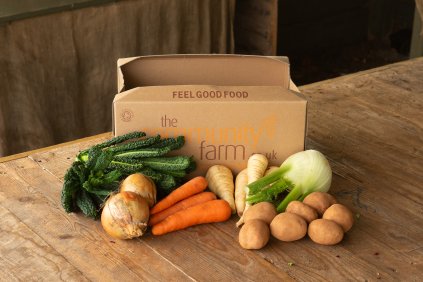While the UK’s vegetable situation is indeed in crisis, it is not for a lack of iceberg lettuces or courgettes, but instead a lack of understanding about seasonality and sustainability.
Extreme weather conditions in Southern Europe – particularly Italy and Spain – have damaged crops and reduced yields, pushing up the price of imports such as iceberg lettuce, courgette and broccoli. It is a dark time for British vegetables. However, the issue here is not the lack of these imports but instead the seemingly incredible demand for them.At this time of year there are plenty of delicious, seasonal British vegetables to choose from. Instead of imported broccoli, why not try some seasonal purple sprouting broccoli or a head of cauliflower. No spinach? No problem, there is a wide variety of kale on offer along with plenty of other seasonal fruits and vegetables.
Seasonal food
We all know that strawberries bought from supermarkets in winter are little more than heart shaped water. Imported fruits and vegetables are often watery and tasteless. Because they have to be shipped from around the world to get to you they are usually picked before they ripen to survive the long trip. Not only do they lose their flavour, they also lose many of their health benefits. By contrast eating with the seasons brings variety to your diet – and that helps you get the full complement of vitamins, minerals and other nutrients that nature offers.What keeps the quality of seasonal food up can also keep its cost down. The food is grown closer to you so it costs less to transport; it is easier to store and less likely spoil on its trip. This cuts down on the cost of the produce in terms of its environmental impact too as there is less waste and reduced carbon emissions.
Education
Before global transportation was as quick and commonplace as it is today, eating seasonally and locally were just things everyone did. Now, due to supermarkets total disregard for seasonality and sustainability, many people are sadly out of touch with seasonal eating.To get down to the root of the problem we need to reconnect people with the land and food growing. That is exactly what we do here at The Community Farm. Our aim is to help people develop a better understanding of where their food comes from, reconnect with the land on which their food is grown, and learn more about sustainable farming through school visits, volunteering, away days from work, workshops and events.
Still pining after salad? Lettuce is just the tip if the iceberg
If, after all of that, you are still pining for salad just remember that lettuce is just the tip of iceberg. The salad leaves we grow in the farm’s three big polytunnels are quite different in winter to our summer salads. During this time of the year our salad bags contain five or more different varieties, chosen for their unique colours and textures with delicious mixture of mild and peppery flavours.Instead of lettuces we grow winter purslane; tatsoi; mizuna; red frilled, gold filled, and Japanese mustard leaves as well as baby kales, rocket and radicchio. These salad varieties can be grown all year-round, but are much better suited to the winter months which slow their growth. As soon as the weather warms up they can bolt and flower within days.
Written by India Langley
Photo credit Jagoda Nizio?.














